
Distorted Thinking Series Part 1 : Cognitive Biases
Author – Emma Triplett
This week kicks off a new series of posts centred around the subject of distorted thinking. Anxiety and depression disorders can develop from various forms of distorted thinking and once these conditions have taken root, they encourage yet more abnormal thoughts. Relationship problems and anger issues also get caught up in their fair share of altered or misaligned perceptions leading to yet more stress and emotional discomfort. So over the coming weeks we’re going to take a closer look at the different forms of distorted thinking we commonly encounter and what we can do about it.
Psychologists have a term – Cognitive Bias which translates as prejudice thinking (cognitive meaning ‘thinking’ and bias meaning ‘prejudice’) and describes a very human trait that we all have. Whether you know it or not and, indeed, whether you like it or not, to be human is to have prejudiced thoughts. The actual definition of cognitive bias is “a systematic pattern of deviation from norm or rationality in judgment” so, if all humans are subject to cognitive bias, it would suggest that we are all irrational would it not?
Well, yes and no! We all like to believe that we think rationally and base judgements on sound information and facts, however, in reality this is often not the case.
Take reading your horoscope as an example, I’m sure everyone has done this (an example of a bias called the ‘false consensus effect’) – have you read your horoscope and, if it describes personality attributes that you perceive as positive or it predicts a wonderful event that is going to happen for you in the next two weeks, you believe it must be true, however, if it foretells doom and gloom and negative traits, it’s a load of old rubbish? (or perhaps the other way around if you have depression – see below). You know rationally that it is not based on fact but you irrationally decide to believe the information presented to you based on it being nice.
To give you a taste of the type of subjects we’re going to be discussing over the coming week and to put this irrational thinking in a little bit of context, consider these:-
Confirmation Bias – “the tendency to search for, interpret, favour, and recall information in a way that confirms one’s preexisting beliefs”
Even scientists need procedures in place to safeguard against their own confirmation bias. Our ‘go to’ database (our brain, not google), holds a lifetime of learning, experience and memories, it will retain information you don’t even remember consuming, but the moment you need to back up your own belief, you mind will search for and find whatever it is you need to justify. It can be anything from ‘eating butter is healthy’ to ‘I’ll never get out of my financial situation’.
Expanding on that latter example, behavioural confirmation is another form of cognitive bias, also knows as a self fulfilling prophecy. This describes how someone’s actions align with a pre-existing belief, effectively causing the belief to come true, for example, if someone believes they will never get that promotion they want, their actions will manifest in such a way that they don’t put in the effort needed or fail to project the attitude or body language of someone deserving of the promotion and therefore, they were correct, they don’t get the promotion.
Common in people with depression is Pessimism bias which is the tendency for some people to overestimate the likelihood of negative things happening to them and there there is Hostile attribution bias which people with both anxiety and depression tend to adopt and is the tendency to interpret others’ behaviours as having hostile intent, even when the behaviour is ambiguous or benign.
But why is this important?
If life has become like ‘swimming through treacle’ or you struggle to maintain relationships, you find yourself in conflicts frequently, you suffer from anxiety or depression disorders or things just don’t seem to go your way, awareness is the key and self development is the treasure you unlock.
Being able to pull yourself back from a cognitive bias and realign with fact and rational reasoning may just unlock a future quite difference from the reality you’re experiencing right now.
If you have an inspiring story or something to share that you think will help others wrestling with anxiety or depression, I would love to hear from you. If you have found in particular strategy helpful, chances are that someone else will also benefit, spread the word, share the love and help the fight back against the epidemic of anxiety and depression spreading across the western world.
Wishing you health, wealth, happiness and success


More Articles to help anxiety and depression
Arrange a Free Initial Consultation in Cirencester, Exeter, Plymouth, Swindon or by Skype
Shop for online courses, eBooks and Self Hypnosis Tracks to help anxiety and depression
How To Move On
Moving on from something or someone can be hard and it seems to make no difference whether the circumstances or person we need to move on from was a good or a bad thing. Letting go and stopping the thoughts and memories from going around in your mind can be tricky, but there are ways you can help yourself and here are a few.
Why treating symptoms of anxiety and depression isn’t the answer
If you want to stop an itch, you do put cream on that itch or do you stop exposing yourself to whatever is causing the itch. In the same vein, treating symptoms of anxiety might give you temporary relief, but it doesn’t cure them if you keep doing the same things that cause anxiety. Find
Why global thinking is bad for anxiety and depression
People with anxiety and depression tend to think in an ‘all or nothing’ way. It comes from the primitive times when life was about eat or be eaten, kill or be kills, but thinking in global terms demonstrates that you are in your flight or fight primitive brain. This video tells you why that’s bad for you.
Something everyone with depression does wrong
If you suffer from depression you do this. People who don’t have a problem with depression don’t. Becoming aware of it empower you to change or stop it. Watch the video to discover what it is you are doing that is keeping you trapped in depression.
What does it take to cure anxiety and depression
You can cure yourself of anxiety and depression. Science shows that a chemical imbalance is responsible and is uncovering more completely treatable and preventable causes. However, before you can start your own recovery, will you understand and accept this element of recovery first?
Skills To Lower Anxiety – Part 3
When you have anxiety, there are certain things you are doing that people other people don’t or skills you are missing or need to practice more in order to not create anxiety in your life. This is the third part in a three part series looking at some of the specific skills you need to learn and practice in order to eliminate anxiety from your life.
Disclaimer | Privacy Policy | Terms and Conditions
Copyright © OLD TOWN HYPNOTHERAPY 2016 All Rights Reserved


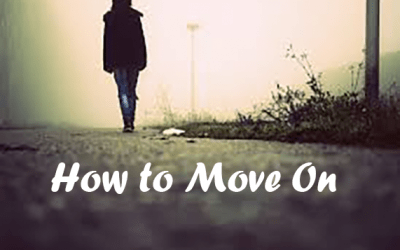
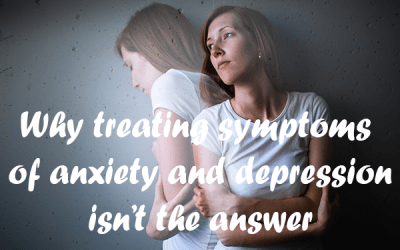
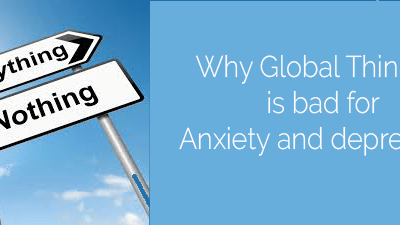
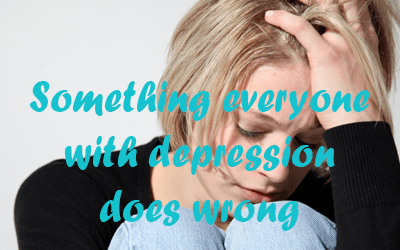
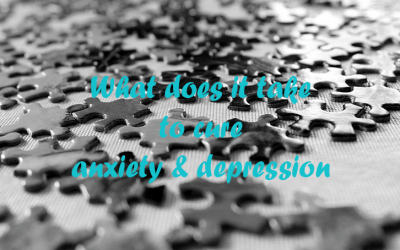
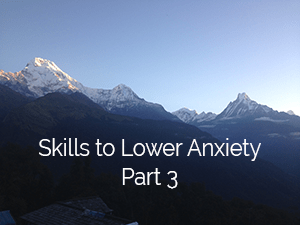
I liked the one about cognitive bias. When escaping a covert narcissist the worst part of all was the cognitive dissonance. Distinguishing between fantasy and reality is very hard to accept and maintain but eventually it will dissipate you just have to train your brain.
Thank you, Katie. ♥️